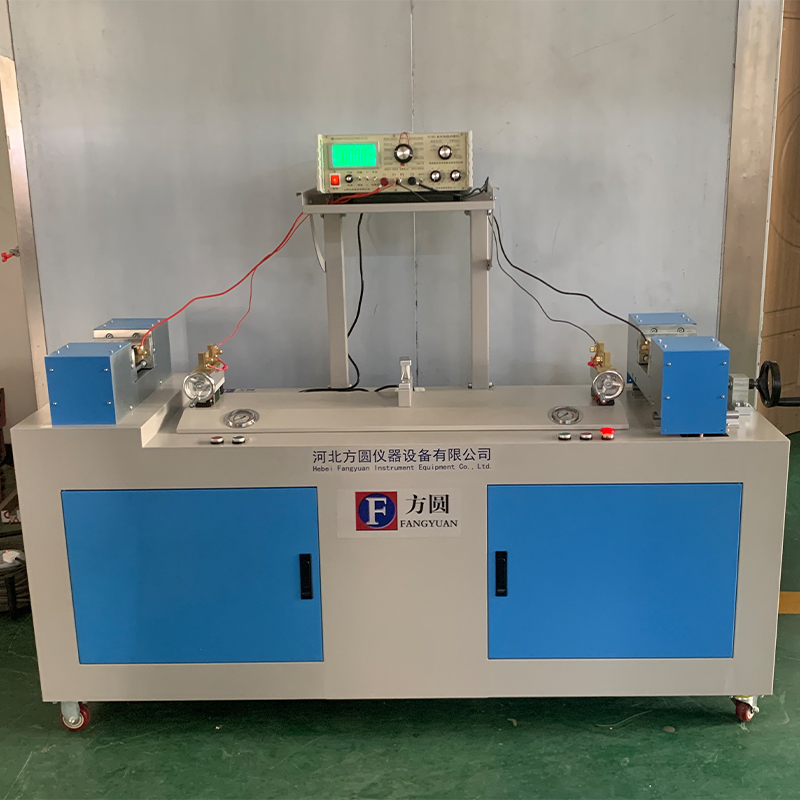Cable Flexibility Testing Apparatus for Assessing Bend Performance and Durability
Understanding the Cable Bend Test Machine A Key Tool in Cable Quality Assessment
In the modern world, cables are essential components used in numerous applications, from electrical wiring and telecommunications to automotive and aerospace industries. As the demand for high-quality cables continues to grow, ensuring that these products can withstand the rigors of their operational environments becomes imperative. This is where the cable bend test machine comes into play, serving as a critical instrument in assessing cable durability and reliability.
What is a Cable Bend Test Machine?
A cable bend test machine is designed to simulate the conditions that cables experience during normal use, particularly focusing on their ability to withstand bending
. The machine applies controlled bending motions to cables at specified angles and durations, testing their structural integrity and performance over time. By doing so, manufacturers and quality assurance teams can identify potential weaknesses and ensure that their products conform to industry standards.Importance of Cable Bending Tests
1. Durability Assessment Cables are often subjected to bending during installation and usage. Continuous bending can lead to insulation damage, conductor breakage, and ultimately failure of the cable. The bending test helps identify cables that may not hold up under such conditions, ensuring only durable products reach consumers.
2. Regulatory Compliance Many industries have specific regulations governing cable performance. The results from cable bend tests can assist manufacturers in meeting these regulatory requirements, thus enhancing safety and reliability in applications ranging from home electrical systems to critical aerospace technologies.
cable bend test machine

3. Prevention of Failures By identifying design flaws or material weaknesses through bending tests, manufacturers can amend their production processes to prevent future failures. This proactive approach not only saves costs associated with product recalls and repairs but also protects the brand's reputation.
4. Performance Optimization The data gathered from bending tests provide insights into how different cables respond to stress and strain. This information can be invaluable for optimizing cable designs and materials, leading to the development of products that are not only more robust but also lighter and more flexible.
How Does the Cable Bend Test Machine Work?
The process generally involves placing the cable in a fixture that holds it securely while a mechanical arm applies a predefined bending cycle. The machine can execute a variety of bending motions, including simple arcs, multiple cycles, and complex movements that mimic real-world scenarios. During testing, parameters such as the number of cycles, bending angle, and load conditions are meticulously recorded.
Advanced machines may also include real-time monitoring systems that track electrical conductivity changes, insulation integrity, and physical wear throughout the bending process, providing a comprehensive view of the cable’s performance.
Conclusion
In summary, the cable bend test machine stands as a vital player in ensuring the reliability and quality of cables used in various industries. As technology progresses and the complexity of cable applications increases, the importance of rigorous testing becomes even more pronounced. By leveraging cable bend test machines, manufacturers can ensure their products not only meet but exceed the necessary standards, safeguarding not just their businesses but also the safety and satisfaction of their customers. In an era where reliability is paramount, investing in robust testing equipment is a step towards achieving excellence in cable manufacturing.
-
Why the Conductor Resistance Constant Temperature Measurement Machine Redefines Precision
NewsJun.20,2025
-
Reliable Testing Starts Here: Why the High Insulation Resistance Measuring Instrument Is a Must-Have
NewsJun.20,2025
-
Flexible Cable Flexing Test Equipment: The Precision Standard for Cable Durability and Performance Testing
NewsJun.20,2025
-
Digital Measurement Projector: Precision Visualization for Modern Manufacturing
NewsJun.20,2025
-
Computer Control Electronic Tensile Tester: Precision and Power for the Modern Metal Industry
NewsJun.20,2025
-
Cable Spark Tester: Your Ultimate Insulation Assurance for Wire and Cable Testing
NewsJun.20,2025
 Copyright © 2025 Hebei Fangyuan Instrument & Equipment Co.,Ltd. All Rights Reserved. Sitemap | Privacy Policy
Copyright © 2025 Hebei Fangyuan Instrument & Equipment Co.,Ltd. All Rights Reserved. Sitemap | Privacy Policy
